Calvin Fussman
Writer-at-Large at Esquire Magazine
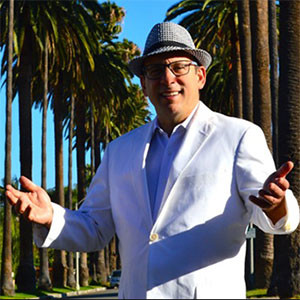
Degree(s): BJ '78
Whereabouts: United States, California, Los Angeles
It was a hot August day in 1974 when a young man stepped out of a taxi and looked at a block of dormitories on the campus of the University of Missouri.
Calvin “Cal” Fussman, BJ ’78, had just moved from Long Island, New York, to Columbia, Missouri, to become a journalist. With his hand-held luggage in tow, he tried to figure out which of the buildings would be his new home. Another young man peeked his head out from a third-floor window.
“Is this Cramer Hall?” Fussman called out.
“Yeah,” the other student called back. “Come on up!”
And with that warm welcome, a welcome he never forgot, Fussman stepped into his new life.
That first day on campus would be emblematic of Fussman’s career.
Thanks to his MU connections and training, Fussman would go on to write for newspapers like the Miami Herald and the Washington Post, travel to more than 50 countries over a decade, meet Mikhail Gorbachev and Muhammad Ali, write New York Times‘ best-selling books, and eat breakfast for the last seven years with broadcast icon Larry King.
College was a crucial part of Fussman’s career. But his story as a writer began long before MU.
“Missouri, Where Else?”
As a boy, Fussman’s father would bring home newspapers from his workplace in New York City. When his dad pulled in the driveway at the end of the day, Fussman and his brother would race down the pavement to get the papers. Fussman would open up to the sports section and read the sports columns. Based on what he read, he knew he wanted to be a writer.
Then, in 1973, Neil Amdur, BJ ’61, the sports editor at the New York Times, spoke to a group in a lecture hall at Columbia University. Fussman, a high school senior at the time, listened intently as Amdur talked about his career covering events such as the 1972 Munich Olympics, when the Israeli Olympians were massacred.
After the speech, Fussman immediately walked over to Amdur, exploding with questions to ask this journalist he hoped to emulate. Fussman expressed his desire to be a sports columnist and asked Amdur which university he should attend to pursue a career in journalism.
“Missouri,” Amdur replied, “where else?”
That was all Fussman needed to hear. Soon after that, he showed up at MU on that hot August day.
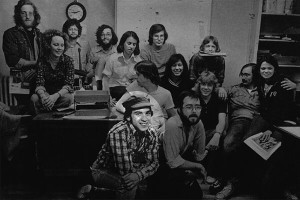
The following four years on campus were filled with long nights and never-ending deadlines. After one road game between the Tigers and the Jayhawks in Lawrence, Kansas, Fussman sat in the backseat of fellow reporter Bucky Fox‘s car. Fussman and Fox were each on basketball beats for the newspapers they worked at. Fussman typed vigorously on a typewriter to make his deadline at The Maneater. Even on nights like that, he still kept his sense of humor.
“He’s one of the funniest guys I’ve ever met,” says Fox, BJ ’77, who at the time wrote for the Columbia Missourian. “Cal is just someone you have to bow down to,” Fox says. “You knew how talented he was as soon as you met him. You just knew he was going places. I see him as a lifelong friend and looking back, it was like something out of a movie while we were driving back from that game; we were laughing the whole way back.”
Fussman shared space in the Maneater newsroom with Tim Sullivan, BJ ’76, now a columnist for the Louisville Courier-Journal; Jerry Sullivan, BJ ’77, now a columnist for the Buffalo News, John McGrath, BJ ’76, now a columnist for the News Tribune in Tacoma; Jeff Jacobs, BJ ’77, now a columnist for the Hartford Courant; and Tom Shatel, BJ ’80, now a columnist for the Omaha World-Herald.
“Simply submitting an article in a competitive crowd like that at the Maneater became an event in itself,” Fussman says. “It may have seemed like a student-run newspaper to anybody on the outside, but from the sports department on the inside, we saw it as a world unto itself.”
After working at the Maneater for two years, Fussman began working at the Missourian. He often worked on his stories into the early hours of the morning and, at times, ended up sleeping outside on a bench blanketed by newspapers.
While he was working at the Missourian, Fussman learned from professors Daryl Moen, George Kennedy and Brian Brooks.
“It would have been nice if I had attended a few classes along the way,” Fussman says. “But, what was unique about the education was what I was able to make out if it. What I learned from them mostly came from independent conversations with them.”
And for good reason.
“Cal threw himself into his work,” Moen says. “He always had a great, positive attitude. As a student he had star power written all over him. Not because he was smart enough, he worked hard as well, which is why he was known for skipping class. He didn’t skip because he was a bad student. He skipped because he was working hard on his stories.”
Skipping class did present struggles, like when it came time for the final exam in his required Principles of Advertising class. If Fussman passed the final exam, he’d graduate with his class. If not, well, he’d be in Columbia for a while longer.
Fussman was taking the class with Joyce King Thomas, BJ ’78, who went on to help create the “Priceless” campaign for MasterCard, and John Schneller, BJ ’80, now an associate professor at the School of Journalism and a Missourian editor. Thomas helped Fussman as they studied through the night almost until the time of the exam. “I had three F’s through three exams going into the final, and Joyce tried to fill my head with everything she knew about advertising,” says Fussman. “She will always have a place in my heart.”
When Fussman, an avid boxing fan, showed up for the exam, Schneller saw him saunter into the room decked out in boxing attire. “I showed up for the final with a sign on my chest that said: F-F-F,” Fussman says. “Underneath those F’s was a huge A.” Students laughed, knowing he had to pass the final to graduate. Fussman was handed the sheet of paper and after 45 minutes, he put down his pencil. To this day, he is astonished that he passed.
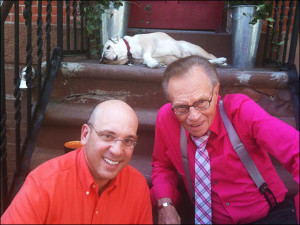
But Fussman had an impact on his School of Journalism peers beyond making them laugh with his struggles.
Late one night during senior year, Fussman was diligently working on one of his sports stories at the Missourian, editing and tweaking it to perfection. A younger staff member came up to Fussman and asked for help editing his story.
“I just started saying to him, well, you could try this and you can move this here. Then if you move this here, then this is going to make sense here,” Fussman says. The younger staff member was devastated, realizing in that moment that he would never have whatever it was that Fussman possessed. “It turned out well for him,” Fussman laughs. “He became a highly-respected and highly-paid lawyer.”
The late nights, meticulous editing and re-editing, and hands-on experience of the journalism curriculum helped Fussman excel as a sports columnist. He was so familiar to the local sports scene that MU head football coach Al Onofrio sometimes found it unusual if Fussman didn’t attend a practice.
Missouri gave him other opportunities, too. He met with John Walsh, MA ’69, the creator of ESPN’s Sports Center, reported on MU sports for the St. Louis Post-Dispatch and United Press International, spoke about the football team at alumni gatherings in Kansas City, and also won an award that came with prize money. “I’m certain it was immediately re-gifted to the Old Heidelberg,” Fussman laughs.
The support and confidence from Fussman’s professors and peers encouraged him to dream big and achieve big. Backed by multiple professors, Fussman launched his career at the Miami Herald. After that, he went to the St. Louis Post-Dispatch and then Inside Sports magazine.
After Inside Sports folded, Fussman was ready to see what else the world had to offer. So he took off to travel the globe.
“May I Sit Next to You?”
The Eurorail train was going more than 180 miles per hour as Fussman walked up and down the middle aisle looking for an empty seat next to someone with a kind, trustworthy face. He had been in Europe for a few years with little money and no permanent home. “I knew that once I sat down, I was going to have to engage the person in a conversation,” Fussman says. “That was going to be my best bet for them to invite me to their home to stay with them.”
As he traveled to more than 50 different countries, meeting countless people, Fussman developed his unique interviewing skills. “Oftentimes, editors from magazines would call me up and ask, ‘What kinds of questions do you ask?’ but, there is no list,” Fussman says. “It’s just a sense of trust that was developed over 10 years of sitting down on those trains and having people invite me into their homes.”
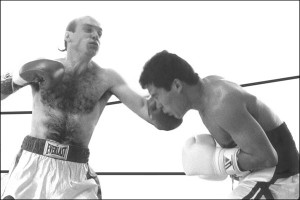
Though this cash-strapped journey was like living a dream, Fussman began to realize he couldn’t remain a nomad forever. One day, while he was traveling through Bolivia, the Sunday Magazine editor at the Washington Post tracked him down and asked him to find the best beach in South America and write about it. Fussman had heard of an amazing beach in Brazil and took the assignment. While researching that story, he met a Brazilian woman who would become his wife.
With a newfound love and a plethora of globetrotting adventures under his belt, Fussman settled in New York and ultimately became a writer-at-large for Esquire, where he interviews people who have lived extraordinary lives for the magazine’s ‘What I’ve Learned’ column. This has enabled him to meet politicians from Gorbachev to president Jimmy Carter; actors from Robert Deniro to Al Pacino; executives from Amazon’s Jeff Bezos to Virgin’s Richard Branson, as well as befriend his two childhood heroes – Muhamad Ali and Larry King.
Two of the longer-form stories he found have become an extremely important part of his writing career.
One is about his training as a sommelier 1,300 feet above the ground at the restaurant known as Windows on The World atop the World Trade Center. After two years of training, traveling around the globe to learn about wine and serving for a night as the official sommelier, the Twin Towers were attacked and destroyed before he could put a word to paper. “Words were trapped inside me,” Fussman says, “and I couldn’t get them out.”
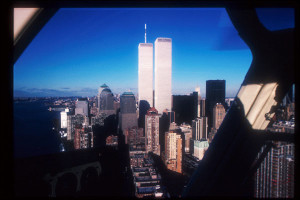
It took him ten years to figure out how to balance the joy in his journey with the tragedy that followed. “Drinking at 1,300 ft.: A 9/11 Story About Wine and Wisdom” was published online in Esquire in 2011. The story won the James Beard award for “Best Personal Essay,” the highest award in culinary literature.
The other story was told through the eyes and in the voice of a man named Michael Wright who escaped from the World Trade Center on 9/11. The story allowed readers to connect with the reality of what happened that day as if a survivor was telling them directly. “The subhead says: ‘The story of his escape is the fastest 3,863 words you will ever read.'” Says Fussman, “But it is more than a magazine article. It’s an oral history. You could read that story 500 years from now and understand exactly what that day was like.”
Fussman says the first story was like painting; the second was like turning a chunk of clay into a sculpture. “It is the difference between looking at a blank canvas,” he says, “and figuring out how to sculpt and form a story that somebody else has put in your hands.”
Tying It Back
Fussman ties his journeys back to that first day on MU’s campus when he was welcomed into his dorm by the young man sticking his head out the window.
“If I really delve deep into it, I could see how, at that first moment, it set me up to succeed,” Fussman says. From his educational journey to his journeys around the world, he always felt that warm welcome everywhere life led him.
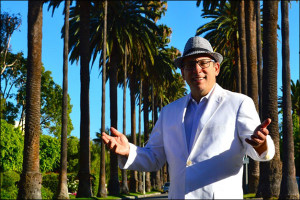
His Missouri connections led him to remarkable experiences, such as having breakfast daily with Larry King, who offered Fussman insight into becoming a better journalist.
“I never judge,” King told him. “Look, everybody has got his or her own style; everybody is going to do it differently. There’s no one right way to do it. There’s really no secret to being yourself.”
Fussman has taken that advice to heart, understanding the value of being comfortable in your own skin to quality writing and interviewing. And now Fussman passes on the sense of comfort, kindness and warm welcome given to him his first day at MU.
Writer Chris Jones was still just an intern when he attended a Christmas party for Esquire in 2001. After the party he watched as Cal Fussman, Tom Junod, David Granger and other of the magazine’s top editors and writers headed toward a steakhouse for dinner. Junod let Jones tag along.
“That night, I sat next to Cal,” Jones says. “He was wearing a white suit with red pinstripes. To this day, I’ll never forget that suit or the valuable insight he gave me while sitting with those men: He said to just sit back and listen. And that’s exactly what I did. He was giving me good lessons and was being so kind to the new kid who didn’t belong at the table, but that’s Cal.”
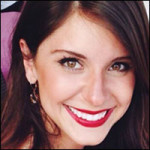
Ally Straussner, BJ ’15, graduated May 2015 from the Missouri School of Journalism. She was an active member in the sorority Delta Gamma, Mizzou French Club and studied abroad in Paris her junior year. Straussner interned at Modern Luxury magazine in Chicago and with College Fashionista. After graduation she moved back to her native Chicago and plans to live there for the next few years working until she can save enough money to move to Europe. Curious at heart, she has the case of wanderlust, loves French language, learning about space and water coloring from her imagination. If she’s not blogging on her website, Tartally.com, she is usually on the hunt for the best slice of key lime pie.
Graduate assistant Rebecca Dell helped Ally Straussner develop this Profile in Success.
Updated: May 4, 2015